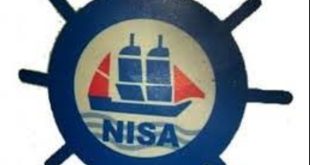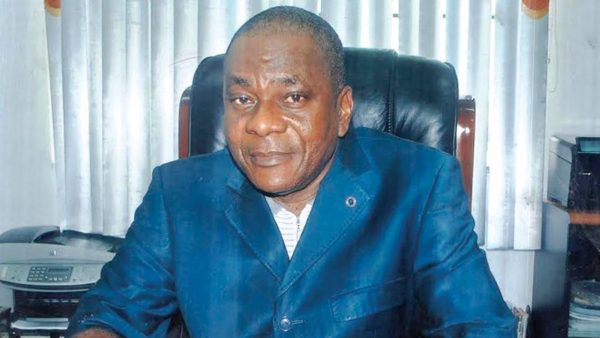• Amaechi unwilling to disburse CVFF
• Six Stakeholders benefit from $700Million NCI Fund
By Kenneth Jukpor
While the mystery surrounding the inability to disburse the Cabotage Vessel Financing Fund (CVFF) lingers and the actual amount in the Fund remains unknown, MMS Plus findings reveal that over $2.4billion has been paid into the Fund by ship-owners since its establishment in 2004.
No beneficiary has emerged to utilize the fund despite the well-publicized plight of Nigerian ship-owners and the negative effects on the shipping sector; however, a similar intervention fund, Nigerian Content Intervention Fund (NCIF) under the auspices of Nigerian Content Development and Monitoring Board (NCMDB) which emerged in 2010 has seen six (6) industry players benefit from the purse which has amassed over $700million.

Our calculation that monies paid into CVFF exceeds $2billion stems from the fact that over $700million has been generated via the same stakeholders with just 1% earnings in eight years from 2010-2018. The CVFF 2% earnings of ship-owners for eight years 2010-2018 would amount to over $1.4billion while the maiden six years CVFF existed prior to the advent of NCIF would have seen operators pay another $1.05billion in CVFF, with the total sum contributed in CVFF exceeding $2.4billion.
With this revelation, industry stakeholders have become perplexed with the recent statements of the Director General of the Nigerian Maritime Administration and Safety Agency (NIMASA), Dr. Dakuku Peterside, that CVFF slightly over-shot $100 million.
Dakuku was responding to the $100 billion being speculated at the time (November 2017) but $100million is a far cry from what should be the actual figures that have been paid into the purse. Although it is also pertinent to note that the Transport Minister, Hon. Rotimi Amaechi and Dakuku revealed that the CVFF purse was empty when they earlier in 2016 as the Fund was allegedly spent on the development of Nigerian Maritime University, Okerenkoko under the previous NIMASA leadership.
Dakuku Peterside insisted that the money was intact; noting that the non-disbursement of the fund was the responsibility of the Minister of Transportation and the Minister’s refusal to disburse the fund was due to the absence of a proper guideline and procedure to do so.
While the details about the NCIF as well as the procedures for obtaining the fund are published on the NCMDB website, CVFF remains a secret purse not worthy to have a space on NIMASA’s well rebranded website, not to talk of publishing the modalities of disbursement.
While the CVFF is widely regarded as a financing platform to enable Nigeria move out of the doldrums with respect to ship ownership, ship acquisition and ship operations, the Act stipulates that the Minister of Transportation has the singular power to come up with guidelines to disburse the funds to eligible applicants.
The essence of CVFF is to create an avenue to help the ship owners maintain their fleet, stay in business and guarantee employment for other players in the industry but the fact that no one has benefitted and with no headway in sight, has led operators question the continuous payment into something that may never work.
The President of Ship-owners Association of Nigerian (SOAN) Engr. Greg Ogbeifun also expressed this opinion at the 2nd Edition of the Nigerian Maritime Technical Summit organized by the Association of Marine Engineers and Surveyors (AMES).
“If CVFF cannot be disbursed for these good reasons, is it possible to recommend that they stop collecting 2% of our revenue. To the contrary, Nigerian Content Board that is collecting 1% revenue has been able to support six (6) industry players to the tune of $700million. They had a workable process because they engaged the services of a consultant and they gave us partial guarantee for up to 30% of the total amount ship-owners are borrowing” Engr. Greg said.
Recognizing the fact that the Transport Minister isn’t a Transport expert, he admonished Amaechi to follow the precedents of his predecessor, by gathering technical and financial experts, ship owners and officials from NIMASA to develop realistic guidelines for the disbursement of CVFF.
He recalled the modalities introduced after stringent meetings with ship-owners, NIMASA officers and finance experts under the previous administration.
“The applicant was expected to send in the company’s application for financing of a ship to NIMASA, NIMASA would reach out to the banks warehousing the 2% of ship-owners CVFF, to carry out the credit risk analysis of the project and if the bank finds the application to be credit worthy. It would make its recommendations to NIMASA that the transaction is worth funding. NIMASA sends this document to the Minister to review, approve and direct for disbursement. Six companies went through this process and they were recommended to the Minister to review, approve and disburse.
“However, the Minister missed it by taking the files of the six companies to the President and the President was amazed to see the amount of money in CVFF and appropriated it for something else. That was the end of the nearest attempt to disburse the fund. So, the new dispensation comes in and the Minister, Hon. Amaechi has said he wouldn’t disburse the fund unless he is told how it would be repaid. In the last dispensation, the bank could guarantee some part of the financial risk as it warehoused the 2% of CVFF. Today all the monies in CVFF has been moved into the Treasury Single Account (TSA) warehoused by the Central Bank of Nigeria (CBN), therefore the role played by the banks have been taken out. Ship-owners have become very emotional to demand that the Minister disburses the fund but the truth is that he can’t. Who is going to do the credit risk analysis? How are ship-owners going to pay back the money if the banks can’t provide any guarantee?” he said.
Recall that the Nigerian Content Board recently developed a relationship with the Bank of Industry (BoI) where they ceded $200million to specifically for ship-owners.
Speaking at the event, Minster of State for Petroleum Resources, Dr. Ibe Kachikwu called on financial institutions, oil companies and other stakeholders to grow the Nigerian Content Intervention Fund to $1bn.
He said, “The Fund needs to be sizeable to finance big ticket items. We will work internally, first to get BOI to contribute its counterpart funding. I also expect the oil industry to contribute. I will like to see investments drives that will bring in Foreign Direct Investments into this Fund. “
The Oil Minster also called for transparent disbursement, geographical spread and application to different segments of the industry.
According to Engr. Greg, BoI put in place the risk analysis and procedures for recovering the fund but they are made it available to ship-owners irrespective of the fact that the Fund is domiciled in the TSA; therefore it is possible for CVFF also held in TSA, to be disbursed for the purpose for which it is meant.
In another development, NCDMB began its third forensic audit of all unremitted deductions by oil and gas companies meant for the Nigerian Content Intervention Fund (NCIF) on Friday, June 1st.
The exercise was announced by the Executive Secretary of NCDMB, Engr. Simbi Wabote at a recent two-day stakeholders’ sensitization workshop on NCIF Remittances Template under TSA in the CBN at Eko Hotel & Suites in Lagos.
In his keynote address, Mr. Wabote explained that the workshop was convened for two main reasons: to sensitize stakeholders on how to remit the 1% deductions from petroleum upstream contracts into the Board’s TSA account with the CBN; and to intimate the industry of the commencement of third party forensic audit, which will trace and recover all unremitted NCIF deductions from concerned companies.
He reiterated that the 1% deduction from contracts awarded in the petroleum upstream sector is a statutory obligation, as provided under section 104 of the NOGICD Act, 2010. Consequently, failure to remit NCIF deductions is a violation of the Act and, in fact, economic sabotage.
Copyright MMS Plus.
All rights reserved. This material, and other digital content on this website, may not be reproduced, published, broadcast, rewritten or redistributed in whole or in part without prior express written permission from KINGS COMMUNICATIONS LIMITED.
 MMS PLUS NG – Maritime, Aviation, Business, Oil and Gas News Online Newspaper with coverage in Maritime, Oil and Gas, Aviation, Power and Energy as well as Financial News
MMS PLUS NG – Maritime, Aviation, Business, Oil and Gas News Online Newspaper with coverage in Maritime, Oil and Gas, Aviation, Power and Energy as well as Financial News










